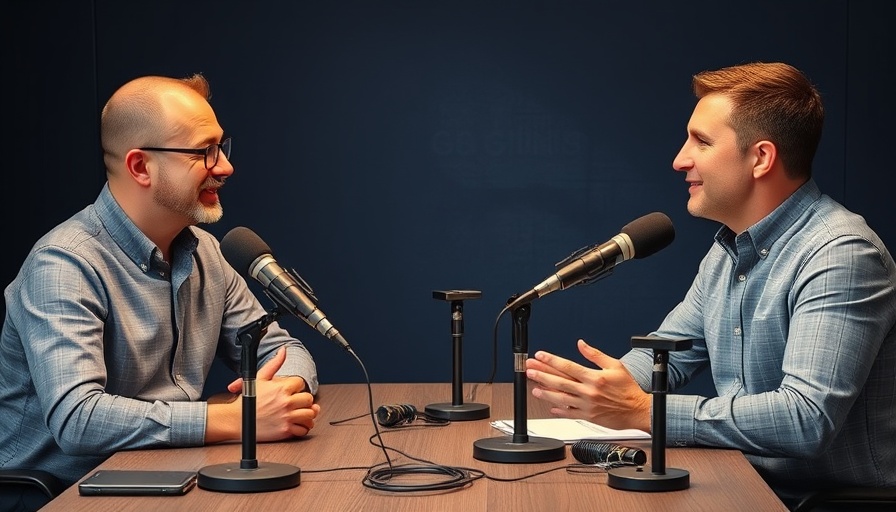
Balancing Information and Health Anxiety: An In-Depth Look
The modern age has ushered in an abundance of information about health. From social media influencers to health websites like WebMD, the internet is flooded with resources meant to educate the public about potential ailments and wellness strategies. Yet, despite this wealth of knowledge, we are seeing a troubling rise in health anxiety. In fact, recent studies suggest that incidences of this condition have skyrocketed in the past four years, raising critical questions about the implications of our information-rich society on mental health.
In 'Understanding anxiety: defining, assessing, and treating health anxiety, OCD, and more', the discussion dives into the complexities of health anxiety, prompting this deeper analysis on how to manage it.
The Reality of Health Anxiety
Health anxiety is often misunderstood. Far from being simply an exaggerated worry about one’s health, it manifests as a deep-seated fear that something is wrong, despite medical assurances. Individuals suffering from health anxiety frequently engage in obsessive thoughts, behavior patterns, and even compulsive doctor shopping to seek validation for their fears. What’s essential to understand is that this isn’t just a psychological issue; it profoundly affects day-to-day living, impacting relationships, work, and overall well-being.
Exposing the Myths: Misconceptions About Health Anxiety
One of the biggest myths is that those with health anxiety are merely seeking attention or faking their symptoms. However, as mental health professionals emphasize, these individuals genuinely believe something is physically wrong, making their suffering very real. Many clients would opt for a severe medical diagnosis over living in a state of constant fear and doubt about their health, underlining the depth of the issue.
Understanding the Symptoms and Their Impact
Common symptoms of health anxiety range from misinterpreting normal bodily sensations as life-threatening conditions to chronic avoidance behavior towards medical settings or activities that may trigger anxiety. This avoidance can severely limit one’s quality of life, creating a vicious cycle in which the individual feels further trapped by their fears.
Making Sense of the Current Health Landscape
In a post-pandemic world, the landscape has only become more complicated. Public awareness of health-related issues has increased significantly; with this growth in awareness comes a heightened sensitivity to personal health. Individuals are more likely to scrutinize their bodily sensations, leading to a feedback loop of anxiety that is hard to escape. The vast range of information at one’s fingertips can often create more confusion than clarity. This confusion can lead to harmful behaviors, such as excessive web searches for symptoms that could exacerbate anxiety, leading to an unhealthy preoccupation over one’s health.
Strategies for Navigating Health Anxiety
While health anxiety may seem overwhelming, understanding effective coping mechanisms and treatments is crucial. Cognitive Behavioral Therapy (CBT) is one evidence-based strategy that has shown promise. This method encourages individuals to recognize distorted thinking processes and reframe their concerns into more rational thought patterns. Engagement in positive activities, regular exercise, and mindfulness techniques allow individuals to channel their focus onto productive habits instead of fears.
Bridging Knowledge and Reality: The Role of Mindfulness
Practices such as mindfulness meditation stand out as valuable tools in combating anxiety. These techniques train individuals to remain present and engaged with their current experiences rather than fixating on hypothetical health crises. This shift from a fear-based to a constructive mindset can significantly reduce anxiety levels and improve mental clarity.
The Importance of Support Systems
None of this is to suggest that individuals should navigate their health fears alone. Mental health support is essential—whether through therapy, support groups, or even trusted friends or family. Surrounding oneself with supportive people who encourage healthy thinking can make all the difference in treatment and recovery.
Conclusion: Empowering Individuals through Understanding
In essence, the key lies in balancing the plethora of health-related information with effective coping strategies. It is critical to approach health with a mindset of curiosity rather than fear. By understanding and addressing health anxiety with compassion, education, mindfulness, and a strong support system, individuals can reclaim their lives and alleviate the burdens imposed by their worries. If you find yourself or someone you know grappling with these feelings, seeking help can be the first step toward a healthier, more balanced life.
Call to Action: Stay informed about health issues but prioritize mental wellness to improve your overall well-being.
 Add Element
Add Element  Add Row
Add Row 



Write A Comment